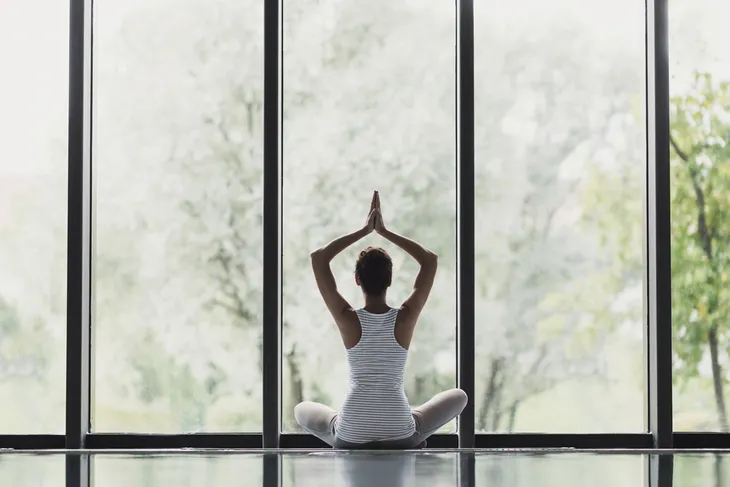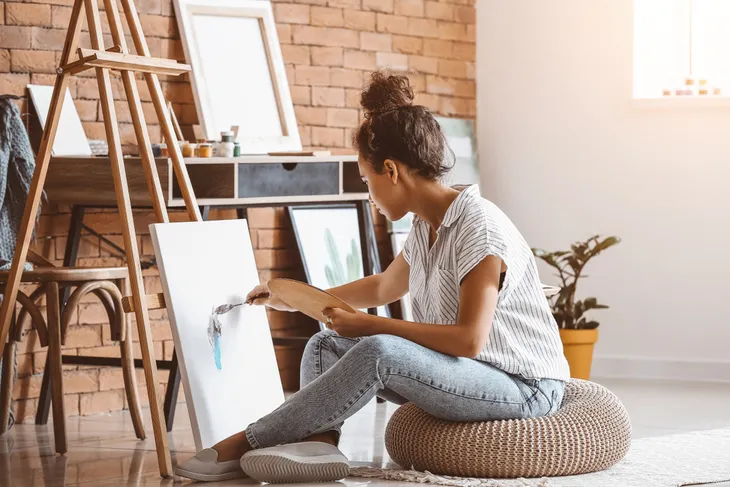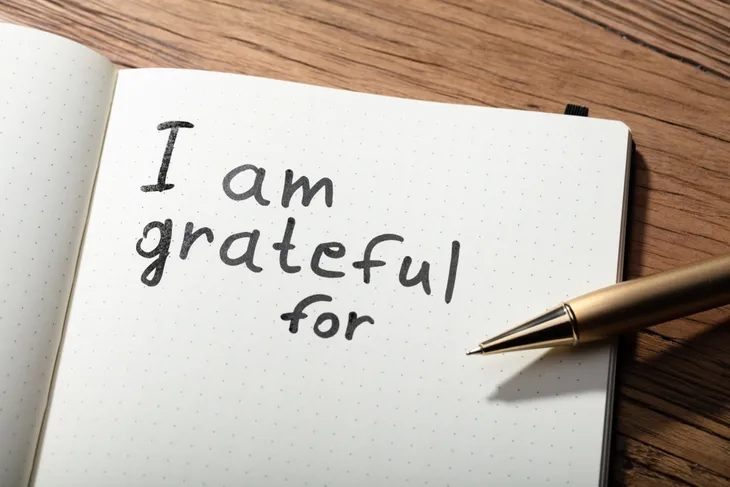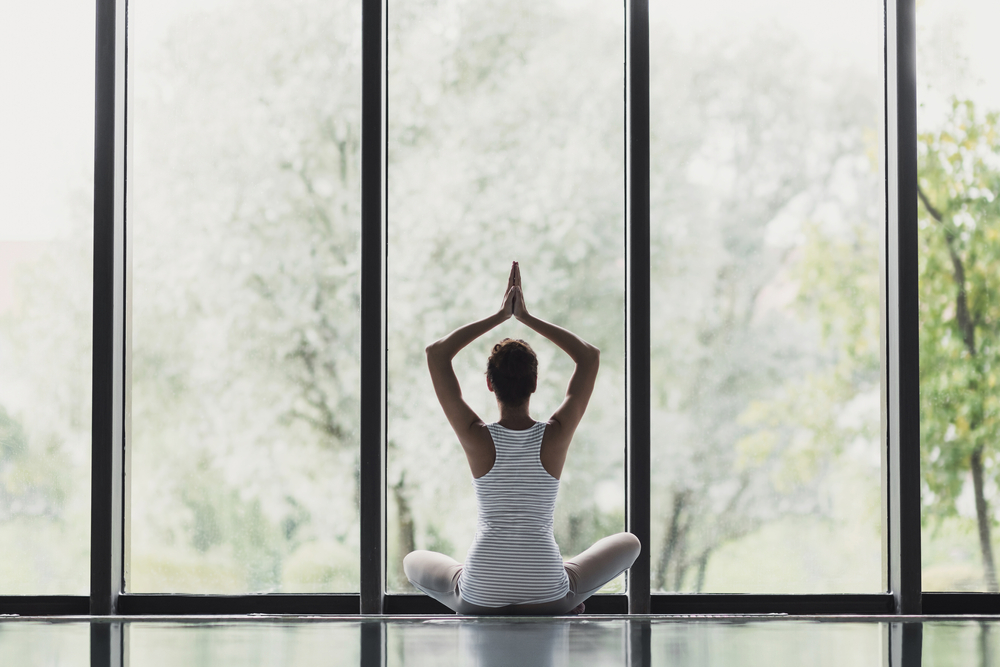- Spending time alone is different than being lonely and can be one of the best ways to get to know yourself.
- Some ways to embrace being alone include focussing on your passions, prioritizing self-care and practicing gratitude.
- If you find yourself feeling truly lonely, it may be best to consult a mental health professional to sort through your feelings.
Spending time alone is one of the best ways to get to know yourself on a deeper level. It’s important to have a solid relationship with yourself so you can be a great friend and family member to others. Spending time alone can also give you the chance to focus your attention on self-care and personal growth.
While spending time alone may feel intimidating at first, there are many ways to embrace independence and solitude. Follow along for our guide on some activities to try by yourself and how to embrace alone time in a healthy way.
Being Alone vs. Being Lonely
It’s important to distinguish the difference between being alone and being lonely since they are two very different concepts. If you are someone who enjoys solitude and spending time alone, this is very different than being lonely.
On the other hand, maybe you’re feeling a lack of connection in your life or a desire for deeper relationships, this could be true loneliness and a longing for connection. While there is some overlap between being alone and being lonely, it’s important to understand that being alone doesn’t have to mean you’re lonely.
 Shutterstock/Alohaflaminggo
Shutterstock/AlohaflaminggoGet To Know Yourself
If you’re finding yourself in a position where you’re going to be spending more time on your own, it’s important to frame the situation as a positive in your head. Being alone doesn’t have to mean being lonely, and there are many strategies to ensure this is the case.
One of the biggest positives to spending time in solitude is how well you get to know yourself. This time spent alone is a great time to build a solid relationship with yourself and to focus on self-discovery and what makes you happy in life. Journalling is a great tool to use along the way to help you sort though your thoughts and feelings.
 Shutterstock/Roman Samborskyi
Shutterstock/Roman SamborskyiPrioritize Self-Care
Another benefit to embracing time alone is that you’re able to focus deeply on self-care. Moments of self-care can be more difficult when you have a busy routine filled with catering to others. When you opt to spend time alone, you’ll find yourself with more time to care for yourself and do the things that make you happy.
Find out what activities make you feel the best version of yourself, and be sure to incorporate these rituals frequently into your routine. Whether it’s heading to a yoga class, cooking a new recipe, or embracing a 10-step skincare routine, find the activities that bring you joy and make them a priority in your lifestyle.
 Shutterstock/Kite_rin
Shutterstock/Kite_rinTake Yourself on a Date
While many associate going on a date as something you do with another person, this definitely doesn’t have to be the case! There’s no better way to show true independence than taking yourself out for a nice meal or a trip to the movies. Self-dates are a powerful tool to learn to be truly happy alone.
While this may seem intimidating at first, it will be so rewarding to know that you can have a fun experience on your own. Start small by simply sitting at a coffee shop alone for 10 minutes, then build it up to whatever level you’re comfortable with.
 Shutterstock/YAKOBCHUK VIACHESLAV
Shutterstock/YAKOBCHUK VIACHESLAVFocus On Your Passions
There’s no better time to focus on your passions than during time in solitude. Is there a project you’ve always wanted to launch or a creative passion you’ve been meaning to try? Time spent alone is the best way to focus on these passions and foster self-growth. You may even surprise yourself with the untapped potential you didn’t even know you had!
Maybe you’ve always wanted to try painting or have an entrepreneurial passion you’ve always wanted to bring to fruition. Time spent alone is the best way to really drill down on these passions and see where you can go with them.
 Shutterstock/Pixel-Shot
Shutterstock/Pixel-ShotConnect With Nature
While it may sound cliché, spending time outdoors, especially by yourself, is one of the best ways to feel connected and recharge. Spending time outdoors can be whatever makes you feel the best version of yourself, whether this is lounging in the backyard, taking a walk around the block or visiting a park.
Take the time to breathe in the fresh air and absorb the sights, sounds and scents. According to Healthline, those who spent 30 minutes or more in nature per week can improve symptoms of depression and lower blood pressure.
 Shutterstock/mavo
Shutterstock/mavoEngage in Physical Activity
There’s no better time to focus on your physical health than when you’re embracing your alone time. Healthline explains that exercise helps release endorphins, which are neurotransmitters in the brain that can make you feel happier.
If exercising isn’t something you typically practice regularly, start off slow with just a few minutes a day. Your exercise routine could be as simple as morning stretches or going for a daily walk around the block. As you get this routine mastered, increase your activity by a few minutes each day. You could even add in strength training, aerobics, or sports to progress your fitness routine even further. It might also be beneficial to consider joining a gym. This can give you purpose during the day and provide a way to connect with others who have a similar interest in fitness.
 Shutterstock/oneinchpunch
Shutterstock/oneinchpunchVolunteer
Helping others is a great way to contribute to the community and connect with others. If you are embracing time alone or currently living alone, volunteering could be a great way to be of service to others and make an impact on society.
Research volunteer opportunities in your city or neighbourhood and see if any stand out as something you’d like to contribute to. Volunteering can help you shift your focus on the greater good and can help you feel connected to others while still getting in some quality alone time.
 Shutterstock/Syda Productions
Shutterstock/Syda ProductionsGet Creative
A great way to explore self-discovery and get to know yourself is to find a creative outlet. Is there a creative hobby you’ve always dreamed of pursuing but haven’t had the time? This period of solitude could be the perfect opportunity to try something new and step outside of your comfort zone.
Getting creative means different things to everyone, whether it’s a DIY home project, learning to play an instrument or enrolling in a new class. This new creative endeavour may become a new passion for you and one of the most fulfilling ways to spend your time alone.
 Shutterstock/Svetlana Romantsova
Shutterstock/Svetlana RomantsovaAvoid Comparison on Social Media
Spending time alone is healthy and productive, but social media can convince you otherwise, especially when you watch someone else’s highlight reel. If you’re in a chapter of your life where you’re embracing more time alone, it may be best to take a step away from social media to avoid comparing your social life to someone else’s.
Social media is not inherently bad, but it can be toxic when scrolling through your feed makes you feel stressed or lonely. If you find yourself feeling this way, it may be time to limit the amount of time you spend scrolling and see if it makes a difference in how you feel. It could also be beneficial to mute or unfollow anyone who makes you feel negative.
 Shutterstock/13_Phunkod
Shutterstock/13_PhunkodPractice Gratitude
One of the best mental health tools to embrace alone time and what you have been blessed with is to practice gratitude. Mental health experts suggest writing down three things you’re grateful for in the morning to start the day on a positive note and to look at your life with an abundance mindset. Healthline explains that practicing gratitude can boost feelings of happiness and hopefulness.
We have all been blessed in our lives with things to be grateful for, but sometimes we may take them for granted and not take the time to truly appreciate them. Writing a gratitude list can help you take a moment of reflection to appreciate even the smallest blessings in your life, such as the sun rising or a delicious cup of coffee.
 Shutterstock/Andrey_Popov
Shutterstock/Andrey_PopovAsk For Help
If you’re finding that your time alone is filled with feelings of true loneliness, it could be beneficial to seek the help of a mental health professional. They can provide you with helpful strategies to help you cope with how you’re feeling and offer ideas to help you feel more connected. They can also help you figure out what triggers your feelings of loneliness, which can be helpful to solving the issue altogether.
Seeking help from a therapist is not something to be ashamed of and doesn’t need to only happen when you’re in crisis mode. Speaking to a therapist regularly can ensure you stay self-aware and in touch with your feelings in a healthy way.
 Shutterstock/Prostock-studio
Shutterstock/Prostock-studio


